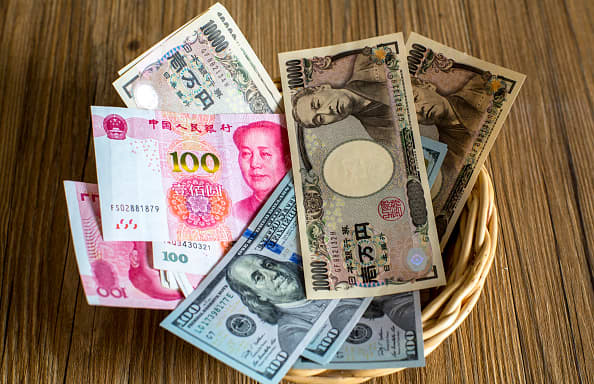
SINGAPORE — China’s recent purchase of Japanese government bonds surged to the highest level in more than three years – as the country more than tripled its holdings between April and July this year, compared to the previous year.
During those three months in 2020, China bought 1.46 trillion yen ($ 13.8 billion) of medium- to long-term JGBs on a net basis, according to Japanese media Nikkei, which cited data from Japan’s finance ministry and its central bank. That was 3.6 times more than the same period last year.
In comparison, the U.S. increased its purchases by only 30% in the same period, that data reportedly showed. Europe, meanwhile, sold off 3 trillion yen worth of JGBs, according to Nikkei.
Yields on JGBs are around zero, making them an unlikely option as an investment since the returns are comparatively low.
But analysts told CNBC there could be other reasons why China would want to buy those bonds.
“One of the odd things about the current environment is that JGBs are no longer an obviously unattractive fixed income security, depending on the currency you are funding the purchase in,” said Ross Hutchison, investment director of global fixed income at Aberdeen Standard Investments.
For instance, China can actually earn more on the investment by buying 30-year JGBs in the Japanese yen and swapping their currency exposure back into U.S. dollars, said Hutchison. It can pick up an additional 0.56% by doing so, according to him. Longer term bonds typically have higher yields as investors need to take on higher risks for holding on to them for a longer period of time.
The practice of a currency swap is when two parties exchange an equivalent amount of money with each other in different currencies, in order to protect themselves from further exposure to exchange rate risk, for instance.
“Many reserve managers buy JGBs and then swap or hedge the currency back into dollars, earning an additional ‘basis’ premium,” said David Nowakowski, a senior strategist of multi-asset and macro at Aviva Investors.
It’s also possible that China may be trying to manage the appreciation of the yuan, as the Chinese currency spiked against the Japanese yen in June, Hutchison pointed out. Selling off the yuan to buy JGBs, which are denominated in yen, could help to curb some of that appreciation.
The yuan has also broadly spiked against the U.S. dollar this year, as the Chinese economy gathers momentum again after what may have been the worst of the coronavirus pandemic.
Another factor is that in comparison to its global counterparts, Japanese government bonds do not have the lowest yields, Nowakowski said.
“Even with a zero yield — in fact JGB yields are slightly below 0% — Japan’s bond market is more attractive than many other countries’ bonds, with Sweden, Switzerland, and core Eurozone countries all having deeply negative yields,” he said.
Treasury yields globally this year have gone down as investors flocked to the safety of government bonds amid the worsening pandemic. As prices go up, yields fall as they move inversely to each other.


